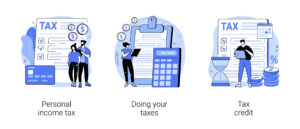Estate Planning for the Wealthy

Estate Planning for the Wealthy
When was the last time you looked at your estate plan? If you can’t answer that question, either because it’s been so long that you can’t remember or because you still don’t have an estate plan in place, then you have some work to do. With the New Year almost here, now is a great time to take a closer look at your estate plan, or to start one, if you haven’t already. Estate planning is important for everyone, especially if you have a lot of wealth and you want to control what happens to it after you pass on. To that end, let’s take a look at some of the important tips to keep in mind for your estate plan.
Estate Tax Could Be Eliminated
Before we get started, there is one important factor to be aware of regarding estate planning and taxes. Now that Donald Trump has been elected president, there could be some changes coming to the estate tax laws: namely, he wants to eliminate the estate tax completely. Currently, any assets that exceed $5.45 million are taxed at a 40 percent rate for one’s beneficiaries. That money would be tax-free if Trump’s proposal is passed.
Remember Your Will
One of the first steps you should take is to draw up a will. That seems like a no- brainer, but the fact is nearly 70 percent of all adults in America as of November of last year did not have a will. Without a will, your estate will end up being divided in probate court and likely won’t end up where you intended.
What About Beneficiaries?
Of course, you get to choose who inherits your money, so make sure you choose wisely and specify which assets go to whom. It’s always a good idea to reevaluate your plan whenever a major life change occurs, such as a new child, a divorce or marriage or a death in the family.
Trust the Trust
Setting up a trust is always a good idea if you have a large estate. Having a trust, with a trustee, allows you to determine how your assets are used and protect them from being abused or misused after you’re gone. There are several types of trusts, but permanent or irrevocable trusts usually provide the most tax benefits. However, when you place assets in such a trust they become the property of the trust, which means they are not subject to estate taxes.
Consider a Roth IRA
Another smart move for many people is to convert a traditional IRA to a Roth IRA. The money from a traditional IRA is taxable if it’s transferred to anyone other than your spouse. However, you can avoid this by slowly converting traditional IRA accounts to Roth IRA accounts.
Give it Away Before You’re Gone
One of the best ways to protect your money and other assets is to give it away before you pass away. You can give away up to $14,000 per person in gifts every year. Those gifts will decrease the value of your estate and they are tax-free for the recipients. You can also donate your assets to charitable causes, which also provides a nice tax break. For more estate planning ideas to protect your wealth contact GROCO for help.
Cost-Sharing Arrangements – Appeals Court Rules Against Xilinx
Cost-Sharing Arrangements – Appeals Court Rules Against Xilinx Taxpayer loses the Xilinx Case (click this link to see the complete Ninth Circuit Court of Appeals Decision of 5/27/09) in the Court of Appeal on May 27, 2009.Subject to further appeal to the Supreme Court (which almost never happens with tax related cases), the tax benefits of…
5 Steps to Great Time Management
5 Steps to Great Time Management By Yihan Lin: Before you learn how to manage the resources of an organization, you must first be learning time management skills for your own life.Time management skills are founded on this principle: If you don’t manage your own life, no one else will. Therefore it is essential that…
IRS Notice 2009-62 Issued 8/7/09
IRS Notice 2009-62 Issued 8/7/09 The due date for reporting the existence of Offshore Bank Accounts on Treasury Department Form TD F 90-22.1 has been an issue of great confusion in the last few months. Form TD F 90-22.1 is known as Foreign Bank Account Reporting (AKA “FBAR”) For a complete review of this soap…
Income the IRS Can’t Touch
Income the IRS Can’t Touch There’s one readily available and legal source of untaxed income that we know of: municipal bonds. These securities are issued by state and local governments, school districts, hospitals and other public agencies to support community projects and services. To permit these worthy endeavors to raise money economically, Uncle Sam exempts…



